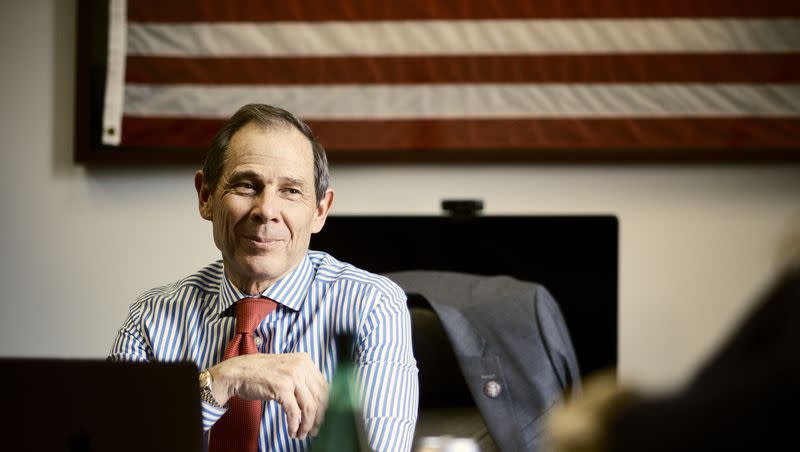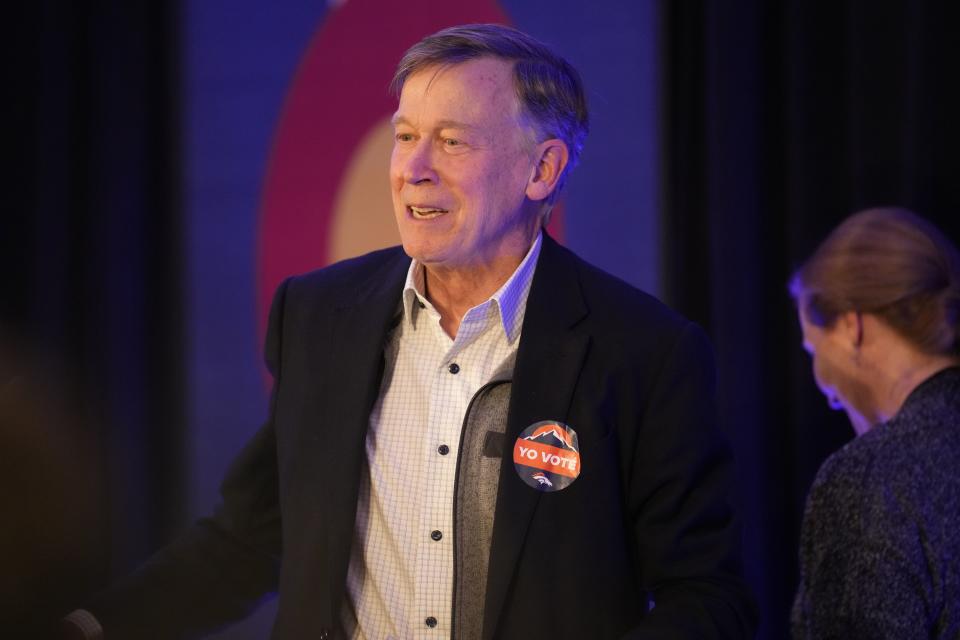Why lawmakers think they can find bipartisan solutions on clean energy

- Oops!Something went wrong.Please try again later.
Rep. John Curtis, R-Utah, and Sen. John Hickenlooper, D-Colo., said there’s growing bipartisan agreement about the need to develop energy sources that are affordable, reliable and clean.
“We all want cleaner air and we all want inexpensive, reliable, clean energy,” Hickenlooper said. “The question is how do we get there at the lowest possible cost with the highest possible resiliency so we’re not vulnerable to extreme weather events.”
Hickenlooper, a Senate Energy and Natural Resources Committee member, and Curtis, vice chair of the House Energy, Climate and Grid Security and Federal Lands subcommittees, spoke together Wednesday as part of a bipartisan, bicameral panel at the Hill Clean Energy event in Washington, D.C., sponsored by Advanced Energy United, a trade association.
Curtis said people in Utah’s 3rd Congressional District, which includes coal, oil, and gas interests, relate to the need for energy that’s clean and also affordable and reliable.
“We’ve all got to talk about those three components,” he said. “In my district, they relate to that. … These are people who are also worried about leaving the Earth better than they found it.”
Curtis said permitting reform — which refers to cutting down on the time it takes to get a permit for a wide range of energy projects from electrical transmission lines to oil and gas lines — is the top topic he hears discussed among lawmakers.
“I think it’s fair to say there are more conversations about permitting reform on both the Republican side, Democratic side, Senate side, House side, than any issue that I’ve been involved in since I’ve been here in six years,” he said. “At the drinking fountain, on the House floor, like, it permeates every conversation, and that’s a good thing.”
Hickenlooper introduced one attempt at permitting reform, the Building Integrated Grids With Inter-Regional Energy Supply, or BIG WIRES Act, in May with Rep. Scott Peters, D-Calif. Hickenlooper said there are certain parts of the country that “have abundant electricity, a bunch of renewable energy,” and “a bunch of parts of the country that don’t,” which he believes the bill could help solve.

Related
The BIG WIRES Act would set requirements for interregional electric transmission through new transmission lines, facility upgrades and other measures, which the bill’s authors say would protect against events like the 2021 Texas storm that knocked power out for millions of Texans.
“Sometimes there’s external events that compel Republicans and Democrats to unnatural acts, to work together,” Hickenlooper said.
Curtis said the bill would struggle to get a vote if it couldn’t get a committee hearing, but he believes it’s important to pass legislation rather than allow changes to happen through executive action so it can’t be undone.
Related
“If we don’t do it legislatively, it’s not permanent and it’s subject to change and if we get a different administration in two years, you’re starting over,” he said. “It’s harder to do it legislatively but it’s more long lasting if we can do it.”
Curtis is a member of the Conservative Climate Caucus, which includes 85 Republicans, or about a third of the House Republican Conference. He said that “stuns most people.”
“I can tell you the dialogue has changed,” he said. “It’s much more of yeah, we understand the climate, but these are our ideas, instead of the fight about the climate.”

